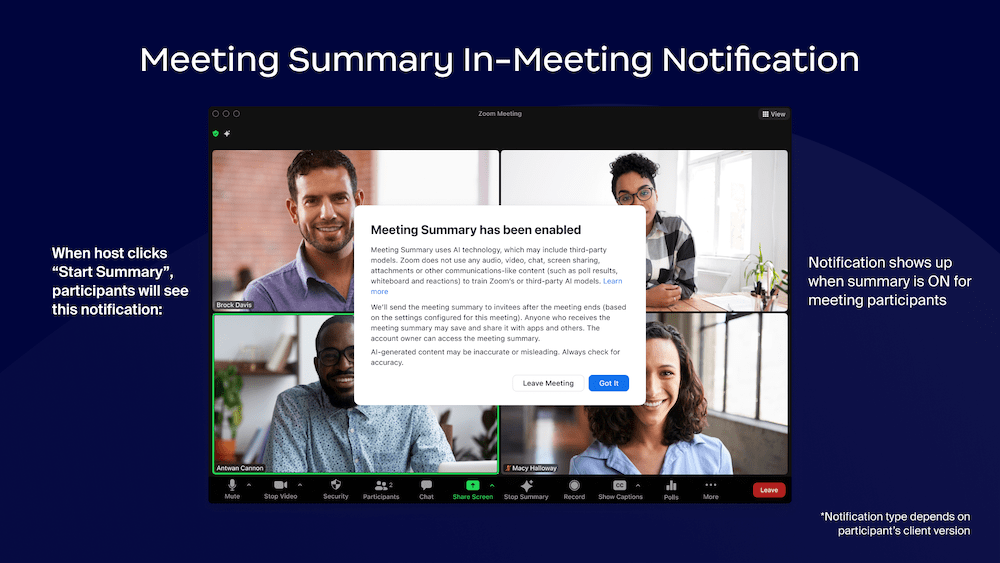Home › Forums › AI-ARTIFICIAL INTELLIGENCE › Corporations move to grab user data for AI development
- This topic is empty.
-
AuthorPosts
-
2023-08-21 at 18:32 #417151
 Nat QuinnKeymaster
Nat QuinnKeymasterTech companies are causing concern with updated terms and conditions that allow them to use user data for AI training and development.
Delivery giant Instacart last week updated its terms to include a clause granting itself blanket permissions to use uploaded user content for AI products:
You grant Instacart a non-exclusive, royalty-free, worldwide, transferable, sub licenseable, perpetual license to use, store, publicly display, publicly perform, reproduce, modify, create derivative works from, or distribute any such content, and to use the content to train, test, or otherwise enhance our machine learning algorithms, for the purposes of operating, providing, and improving the Services.
Instacart forbids users, however, from doing the same:
You further agree that you will not use the Services or any information contained therein or obtained therefrom, including any output or other information derived from the Services, to directly or indirectly create, train, test, or improve any machine learning, large language, or artificial intelligence models. . .
Microsoft also recently updated its Services Agreement, which grants the corporation “a worldwide and royalty-free intellectual property license to use Your Content, for example, to make copies of, retain, transmit, reformat, display, and distribute via communication tools Your Content on the Services.” The agreement, which takes effect September 30th, has been updated to define “Your Content” as “content that is generated by your use of our AI services.”
Like Instacart, the company also forbids users from trying to figure out its AI algorithms or models or from using “the AI services, or data from the AI services, to create, train, or improve (directly or indirectly) any other AI service.”
In its Privacy Statement, Microsoft acknowledges that it uses users’ personal data to “improve and develop” products, among other purposes. While the company says users have “choices” when it comes to the data they share, it clarifies that users who do not relinquish their data may not use Microsoft’s services.
“When we ask you to provide personal data, you can decline,” the company says. “Many of our products require some personal data to provide you with a service. If you choose not to provide data required to provide you with a product or feature, you cannot use that product or feature.”
The updates come after a public outcry over similar policies from Zoom forced the video conferencing giant to tweak its terms and conditions.
Online posts drew attention this month to clauses within Zoom’s terms which suggested the company could use customer data to train AI systems and algorithms. While some said this only applied to service generated data — such as telemetry and diagnostics data — the widespread backlash prompted Zoom to add that it will not use customer content to train AI products:
Zoom does not use any of your audio, video, chat, screen sharing, attachments or other communications-like Customer Content (such as poll results, whiteboard and reactions) to train Zoom or third-party artificial intelligence models.
Still, concerns remain over the fact that Zoom can use customers’ content if they opt in — but like Microsoft, the choice is to opt in or leave. Zoom says it will notify participants via a pop-up when a feature called Meeting Summary has been enabled which allows Zoom to use the content for AI development.
The pop-up reads:
Meeting Summary has been enabled.
The account owner may allow Zoom to access and use your inputs and AI-generated content for the purpose of providing the feature and for Zoom IQ product improvement, including model training. The data will only be used by Zoom and not by third parties for product improvement. Learn more
We’ll send the meeting summary to invitees after the meeting ends (based on the settings configured for the meeting). Anyone who receives the meeting summary may save and share it with apps and others.
AI-generated content may be inaccurate or misleading. Always check for accuracy.

Participants are given a choice to either accept these terms or leave the meeting, raising legal questions about what constitutes “consent.”
source:Corporations move to grab user data for AI development | Frontline News
-
AuthorPosts
- You must be logged in to reply to this topic.
